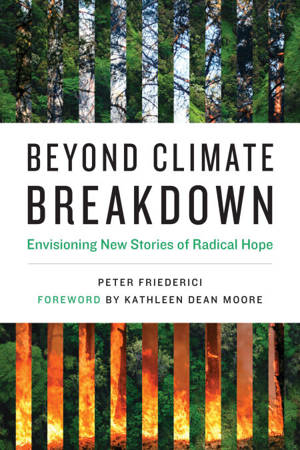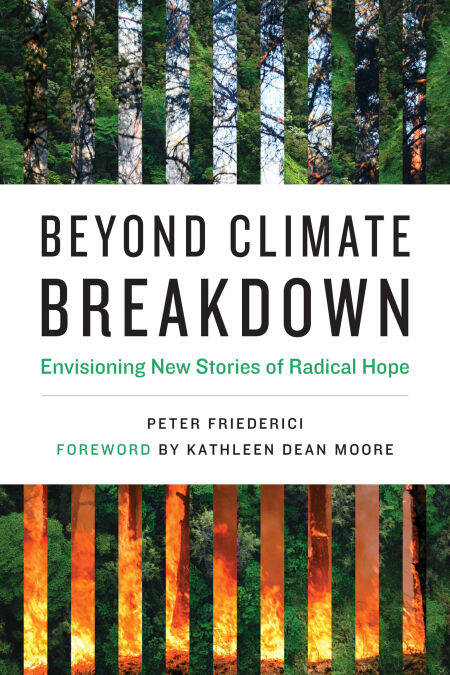
Je cadeautjes zeker op tijd in huis hebben voor de feestdagen? Kom langs in onze winkels en vind het perfecte geschenk!
- Afhalen na 1 uur in een winkel met voorraad
- Gratis thuislevering in België vanaf € 30
- Ruim aanbod met 7 miljoen producten
Je cadeautjes zeker op tijd in huis hebben voor de feestdagen? Kom langs in onze winkels en vind het perfecte geschenk!
- Afhalen na 1 uur in een winkel met voorraad
- Gratis thuislevering in België vanaf € 30
- Ruim aanbod met 7 miljoen producten
Zoeken
€ 24,63
+ 24 punten
Omschrijving
The importance of telling new climate stories—stories that center the persistence of life itself, that embrace comedy and radical hope.
“How dare you?” asked teenage climate activist Greta Thunberg at the United Nations in 2019. How dare the world’s leaders fiddle around the edges when the world is on fire? Why is society unable to grasp the enormity of climate change? In Beyond Climate Breakdown, Peter Friederici writes that the answer must come in the form of a story, and that our miscomprehension of the climate crisis comes about because we have been telling the wrong stories. These stories are pervasive; they come from long narrative traditions, sanctioned by capitalism, Hollywood, and social media, and they revolve around a myth: that the nation exists primarily as a setting for a certain kind of economic activity.
Stories are how we make sense of the world and our place in it. The story that “the economy” takes priority over everything else may seem foreordained, but, Friederici explains, actually reflect choices made by specific people out of self-interest. So we need new stories—stories that center the persistence of life, rather than of capitalism, stories that embrace contradiction and complexity. We can create new stories based on comedy and radical hope. Comedy never says no; hope sprouts like a flower in cracked concrete. These attitudes require a new way of thinking—an adaptive attitude toward life that slips the narrow yoke of definition.
“How dare you?” asked teenage climate activist Greta Thunberg at the United Nations in 2019. How dare the world’s leaders fiddle around the edges when the world is on fire? Why is society unable to grasp the enormity of climate change? In Beyond Climate Breakdown, Peter Friederici writes that the answer must come in the form of a story, and that our miscomprehension of the climate crisis comes about because we have been telling the wrong stories. These stories are pervasive; they come from long narrative traditions, sanctioned by capitalism, Hollywood, and social media, and they revolve around a myth: that the nation exists primarily as a setting for a certain kind of economic activity.
Stories are how we make sense of the world and our place in it. The story that “the economy” takes priority over everything else may seem foreordained, but, Friederici explains, actually reflect choices made by specific people out of self-interest. So we need new stories—stories that center the persistence of life, rather than of capitalism, stories that embrace contradiction and complexity. We can create new stories based on comedy and radical hope. Comedy never says no; hope sprouts like a flower in cracked concrete. These attitudes require a new way of thinking—an adaptive attitude toward life that slips the narrow yoke of definition.
Specificaties
Betrokkenen
- Auteur(s):
- Uitgeverij:
Inhoud
- Aantal bladzijden:
- 184
- Taal:
- Engels
- Reeks:
Eigenschappen
- Productcode (EAN):
- 9780262370141
- Verschijningsdatum:
- 9/10/2023
- Uitvoering:
- E-book
- Beveiligd met:
- Adobe DRM
- Formaat:
- ePub

Alleen bij Standaard Boekhandel
+ 24 punten op je klantenkaart van Standaard Boekhandel
Beoordelingen
We publiceren alleen reviews die voldoen aan de voorwaarden voor reviews. Bekijk onze voorwaarden voor reviews.









